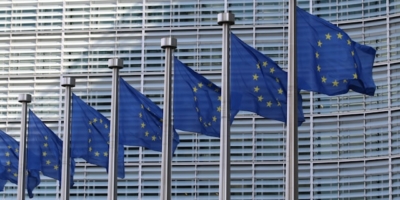Check out the latest news on laws and regulations.

Making Way for the New Knowledge Economy: More Tech, Less Tax
Legislators often struggle to keep pace with technology but that does not stop them from trying. Argentina’s capital, the City of Buenos Aires, has emerged as a hub for information and communication technologies, creating a home for the promotion and development of such business in its new Technological District[1]. The country and its capital have worked hard to attract investment and to foster growth in the sector. A new statutory framework represents the federal government’s latest effort to enable knowledge-based industries to flourish and to incentivize investment.
The Knowledge Economy Law
On June 10, 2019, the National Congress enacted the Régimen de Promoción de la Economía del Conocimiento (the “Knowledge Economy Law”)[2] to furnish meaningful tax benefits to qualifying businesses. The Knowledge Economy Law reboots and expands on an earlier “Software Industry Law”, which granted several federal tax benefits to software companies but expires in December 2019.[3] The new law enlarges the pool of beneficiaries to include industries such as biotech, artificial intelligence (AI), and aerospace.
The Inclusive Nature and Tax Stability of the Knowledge Economy Law
The more inclusive Knowledge Economy Law recognizes the increasing diversity, growth, and prosperity of other knowledge-based industries. It provides for tax stability by which a beneficiary’s total tax burden will be locked in at the time of qualification and will not increase so long as the taxpayer continues to qualify under the law. By locking in the tax burden for federal taxes, the government is signaling its appetite for long-term investments that digital and information-based industries need to succeed.
Tax Incentives and Benefits under the Knowledge Economy Law
In addition to tax stability, qualifying taxpayers will enjoy a reduced income tax rate (15% as compared to the general corporate rate of 25% for FY 2020). The law also exempts qualifying beneficiaries from withholding or collecting on account of VAT (which, at 21%, is a meaningful incentive). Perhaps even more importantly, qualifying ttaxpayers will enjoy payroll benefits. These payroll benefits translate to a lowering of an employer’s contributions and a one-time tax credit to apply toward federal payroll taxes. Finally, the Knowledge Economy Law allows companies to receive a credit for foreign taxes paid, regardless of whether a double tax treaty applies.
Requirements and Commitments for Qualification under the Knowledge Economy Law
In exchange for these various benefits, the qualifying taxpayer agrees to contribute a portion of its a pooled fund used to support early-stage development of other entrepreneurs. The taxpayer must also register as a beneficiary under the Knowledge Economy Law.[4]
The Knowledge Economy Law is scheduled to apply through 2029. To qualify, the taxpayer needs to carry out recognized “knowledge-based activities”.[5] Assuming taxpayer activity qualifies, it must certify its satisfaction of at least two of the following three requirements:
- Continuous improvements in the quality of services, products, and/or processes;
- Minimum spend of 3% of total revenue on Research and Development or 8% of total payroll toward employee training;
- At least 13% of total revenue from qualifying activities is sourced from the export of goods or services.
Argentina's Potential in the Knowledge Economy and Growth Prospects
The knowledge economy, though still in infancy, offers Argentina a chance to become a leader in information and communication technology. The country is already home to four of Latin America’s nine “unicorns” (privately held startups valued at over US$1 billion). To read more on the Knowledge Economy Law’s effect on tech “unicorns,” see WSC’s Pablo Sylvester’s click here. The Knowledge Economy Law looks to germinate more of these giants, with the government projecting an export revenue increase of around US$15 billion by 2030 and the creation of hundreds of thousands of jobs.[6]
Footnotes
[1]https://www.buenosaires.gob.ar/distritoseconomicos/distritotecnologico/distrito-tecnologico
[2] Law No. 27,506
[3] The government has yet to regulate the Knowledge Economy Law and the exact contours, such as the duration of the tax stability guarantee, are still to be determined.
[4] El Registro Nacional de Beneficiarios del Régimen de Promoción de la Economía del Conocimiento.
[5] Software and digital services; audiovisual production and postproduction; biotechnology, bio-economy, biology, biochemistry, microbiology, bioinformatics, molecular biology, neurotechnology and genetic engineering; geoengineering; geological and prospecting services; exportation of professional services; nanotechnology and nanoscience; aerospace and satellite industries; nuclear engineering; automated goods and services.
More information
This article was prepared by Haris Vrahliotis during her internship at Wiener Soto Caparrós. If you would like to discuss this matter, please do not hesitate to contact our expert in Knowledge Economy.
Disclaimer
This article is based on publicly available information and is for informational purposes only. It is not intended to provide legal advice or an exhaustive analysis of the issues it mentions.





